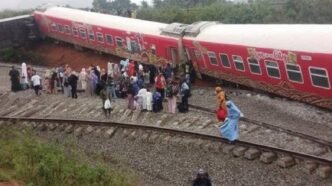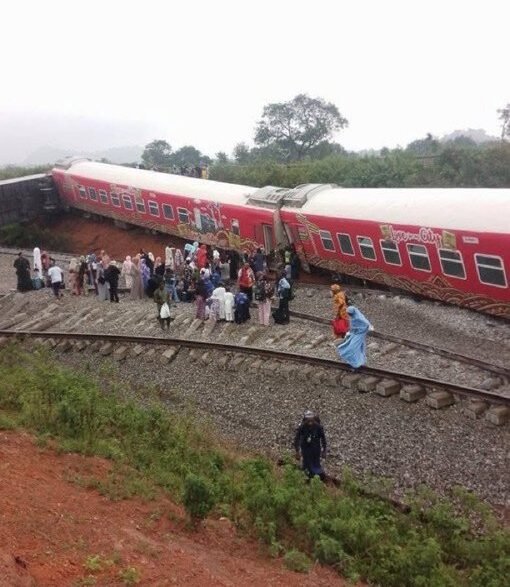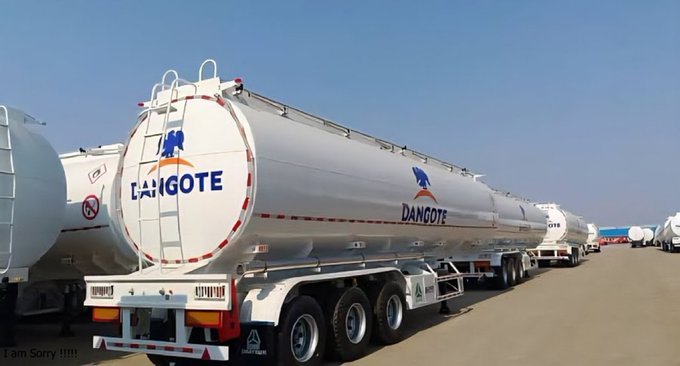The Nigerian Railway Corporation (NRC) has revealed the official cause of the recent Abuja–Kaduna train derailment, which left at least 20 passengers injured and raised serious concerns about the safety of Nigeria’s rail infrastructure. According to preliminary findings released on Monday, the corporation attributed the accident to human error, excessive speeding, and misapplication of the emergency braking system.
The derailment, which occurred over the weekend, had sparked widespread panic among commuters and reignited debates over rail safety and operational standards in Nigeria. The Abuja–Kaduna corridor is one of the busiest in the country, often considered a safer alternative to the road route that has been plagued by bandit attacks in recent years.
Details of the Derailment
According to eyewitnesses, the train—laden with passengers traveling from Abuja to Kaduna—suddenly veered off the tracks near Dutse, causing several coaches to derail. Many passengers were thrown off balance, with luggage and belongings scattered across the carriages. Though no fatalities were recorded, 20 passengers sustained injuries ranging from bruises to fractures. Emergency response teams were quickly dispatched to the scene to assist victims and restore order.
Passengers who spoke to journalists described moments of chaos and fear. “We heard a loud screeching noise, then suddenly the train jolted violently,” one survivor said. “People were screaming, children were crying, and there was confusion everywhere.”
NRC’s Findings
In a press briefing, NRC officials stated that an investigation was immediately launched into the incident. The preliminary report highlighted three key causes:
- Human Error – The train operators reportedly failed to adhere to standard safety procedures, leading to poor decision-making in a critical moment.
- Excessive Speeding – The train was said to have exceeded the recommended speed limit along certain sections of the track, increasing the risk of derailment.
- Misapplication of the Emergency Braking System – Instead of stabilizing the train, the abrupt and improper use of emergency brakes reportedly worsened the situation, destabilizing the coaches and leading to derailment.
An NRC spokesperson emphasized that safety protocols are in place to prevent such incidents but admitted that lapses in judgment by operators contributed significantly.
Injured Passengers and Medical Response
The injured passengers were transported to hospitals in Abuja and Kaduna for treatment. Medical officials confirmed that while most victims sustained minor injuries, a handful of passengers were in critical but stable condition.
“The swift response of rescue teams helped minimize casualties,” an NRC medical officer said. “We are grateful that no lives were lost, but we take these injuries seriously and are providing full medical support to affected passengers.”
Safety Concerns and Public Reaction
The derailment has sparked fresh debates about the safety of the Abuja–Kaduna rail line, which has already faced challenges in the past. In March 2022, a deadly terrorist attack on the same corridor claimed multiple lives and forced the suspension of operations for several months.
While security along the route has since been beefed up, the derailment now shifts focus to operational safety and staff training. Social media has been abuzz with reactions from Nigerians expressing concern and frustration. Some commuters have begun questioning whether the train service remains a safer option compared to the road alternative, which is often plagued by kidnappings and armed robberies.
NRC’s Next Steps
The NRC assured the public that it has already begun implementing corrective measures. These include:
- Immediate retraining of staff on safety procedures and braking system applications.
- Strict enforcement of speed limits across all rail corridors.
- Comprehensive safety audit of locomotives and track infrastructure.
- Review of operational guidelines to ensure accountability and minimize human error.
The corporation also pledged to compensate injured passengers and cover their medical bills. “We deeply regret this incident and assure Nigerians that we are taking every necessary step to prevent a recurrence,” the NRC spokesperson said.
Government Reaction
The Federal Ministry of Transportation has called for a full investigation into the derailment and has instructed the NRC to submit a detailed report within the next two weeks. A senior ministry official stated that accountability will be pursued and that disciplinary actions could follow against any staff found negligent.
Meanwhile, lawmakers have begun to weigh in, with some members of the National Assembly calling for an independent probe to determine if systemic issues within the NRC are being overlooked.
Broader Implications
The Abuja–Kaduna railway has been a critical link for thousands of Nigerians who rely on it for business and travel between the Federal Capital Territory and the North-West. The derailment could undermine public trust in rail services and discourage ridership, at a time when the government is heavily investing in expanding Nigeria’s rail infrastructure.
Experts say the incident underscores the urgent need for modern technology-driven safety systems such as automatic train control (ATC) and advanced monitoring systems that can minimize the impact of human error.
Conclusion
The Abuja–Kaduna train derailment is another reminder of the challenges facing Nigeria’s transportation sector. While the absence of fatalities brings some relief, the injuries sustained by passengers and the circumstances surrounding the derailment highlight the urgent need for better safety enforcement and accountability.
For now, Nigerians await the final report of the investigation and concrete steps from the NRC to reassure the public that rail travel remains a reliable and safe option.














